Ci viene spesso chiesto dai nostri lettori quanti plugin di WordPress dovrebbero installare sul loro sito. Ma la vera domanda che tutti vogliono sapere è quanti plugin sono troppi.
Poiché ci sono molte idee sbagliate sui plugin di WordPress e su come possono influire sulla velocità, le prestazioni e la sicurezza del sito web, vogliamo spiegare questo argomento in dettaglio per i nostri utenti non esperti di tecnologia.
In questo articolo, spiegheremo quanti plugin di WordPress dovresti installare sul tuo sito. Parleremo anche di come i plugin possono e non possono influire sul tuo sito web. Il nostro obiettivo è aiutarti a imparare come gestire il tuo sito web con la combinazione perfetta di plugin di WordPress.
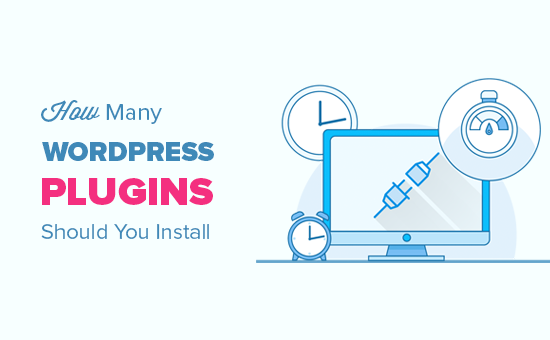
Informazioni sui plugin di WordPress e sul loro funzionamento
Prima di approfondire, parliamo un po' dei plugin di WordPress e di come funzionano.
I plugin di WordPress sono come le app per il tuo sito web. Ti aiutano ad aggiungere nuove funzionalità e caratteristiche al sito web come creare un negozio online, aggiungere moduli di contatto e altro ancora.
Come WordPress stesso, anche i plugin sono scritti nel linguaggio di programmazione PHP. Il codice PHP viene eseguito sul server di hosting del tuo sito web e utilizza le sue risorse.
Ecco perché devi scegliere una buona società di hosting WordPress che ti fornisca strumenti facili per gestire tali risorse ed eseguire il tuo sito web in modo efficiente.
Per saperne di più, consulta la nostra guida dettagliata su come funzionano i plugin di WordPress. Se vuoi approfondire ancora di più, dai un'occhiata a come funziona realmente WordPress dietro le quinte (Infografica).
Fin da WordPress 1.2 (quando è stato aggiunto il supporto per i plugin di WordPress), i plugin sono stati una benedizione per gli utenti. WordPress senza plugin è come un negozio di giocattoli senza giocattoli. Non è divertente.
Perché i plugin sono essenziali per i siti web WordPress
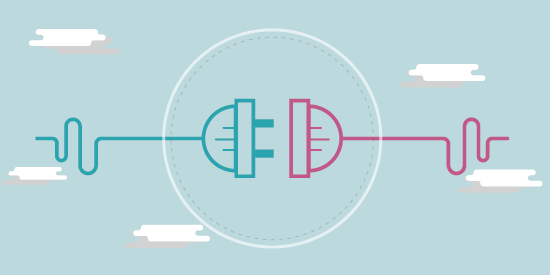
Anche se il core di WordPress fornisce un solido framework di pubblicazione, sono i plugin i principali responsabili del rendere WordPress il website builder più popolare al mondo.
Il numero totale di plugin di WordPress disponibili è cresciuto nel corso degli anni. Al momento della stesura di questo articolo, ci sono più di 60.000 plugin gratuiti di WordPress disponibili nella directory ufficiale dei plugin.
Oltre a questi plugin gratuiti, ci sono anche migliaia di plugin WordPress premium venduti da aziende e sviluppatori terzi.
I plugin possono aiutarti a migliorare la SEO, aumentare la sicurezza, gestire gli utenti e altro ancora. Sarebbe piuttosto difficile far crescere la tua attività senza utilizzare i plugin di WordPress sul tuo sito web.
Come hanno fatto i plugin di WordPress a guadagnarsi una cattiva reputazione
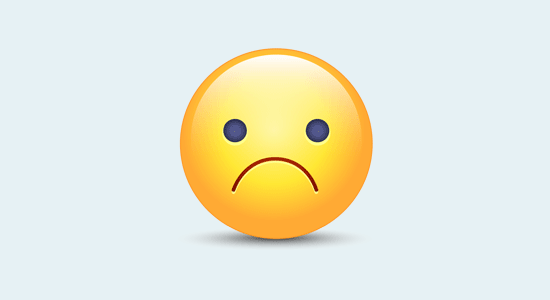
Lo scopo dei plugin è estendere WordPress per fare quasi tutto ciò che si può immaginare. Tuttavia, ora vediamo un senso di paura o di restrizione nei confronti dei plugin da parte di molti utenti principianti.
Le persone si preoccupano delle prestazioni, della sicurezza, dell'affidabilità, ecc. Questo accade principalmente perché designer, sviluppatori e tecnici di supporto di web hosting si frustrano molto quando devono risolvere i problemi dei siti web di un cliente.
Nella loro frustrazione, fanno commenti come 'usa meno plugin' o 'sono i plugin che rallentano il tuo sito'.
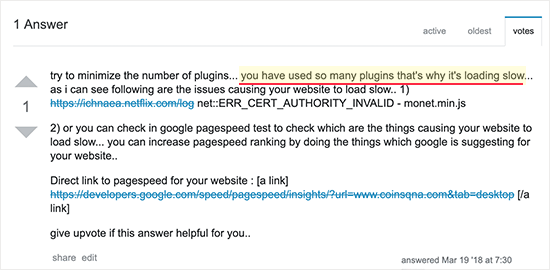
Queste affermazioni sono risuonate sui social media, negli incontri di persona e nelle conferenze. Il problema più grande di queste affermazioni è la loro ambiguità.
Cosa significa meno? Quanti plugin WordPress sono troppi?
Crediamo che il problema non sia la quantità di plugin, ma piuttosto la qualità.
Puoi avere decine di buoni plugin WordPress in esecuzione sul tuo sito web senza problemi, ma l'aggiunta di un singolo plugin mal codificato può rallentare il tuo sito web.
Quando ciò accade e chiedi aiuto per la risoluzione dei problemi, il tecnico di supporto della tua società di hosting o un altro sviluppatore incolperà la quantità di plugin.
Questo ha senso perché la risoluzione dei problemi di un sito web con 5 plugin è molto più facile che risolvere i problemi di un sito web con 30. La quantità di plugin rende il loro lavoro più difficile.
È estremamente importante prendere qualsiasi consiglio del genere, derivante dalla frustrazione, con un po' di cautela.
Dovresti chiedere educatamente loro di identificare quale plugin specifico sta causando il problema perché incolpare semplicemente la quantità è il risultato della pigrizia.
Per mettere le cose in prospettiva, il nostro sito web WPBeginner ha attualmente 62 plugin attivi e si carica estremamente velocemente.
Se dovessimo aggiungere un plugin difettoso che rallenta il sito web, allora dovremmo solo disabilitare quel singolo plugin difettoso (non tutti e 62).
Detto questo, diamo un'occhiata a come i plugin possono influire sui diversi aspetti del tuo sito web.
Come i plugin WordPress influiscono sulla velocità e sulle prestazioni del sito web

Esistono molti tipi diversi di plugin WordPress e ognuno influisce sulle prestazioni del tuo sito web in modo diverso.
Ci sono plugin che influiscono principalmente sul front-end. Ad esempio, plugin per la creazione di pagine, moduli di contatto, gallerie, slider, ecc.
Ci sono poi i plugin realizzati principalmente per eseguire attività nell'area di back-end o amministrativa. Ad esempio, i plugin di backup di WordPress, i plugin editoriali, vari processi in background, ecc.
Ci sono anche plugin che funzionano ovunque, inclusa l'area amministrativa e il front-end. Ad esempio, i plugin SEO, i plugin firewall di WordPress e altro ancora.
L'impatto di un plugin di WordPress sulla velocità e sulle prestazioni del sito web dipende da dove viene caricato quel plugin.
Ad esempio, i plugin che vengono caricati solo quando si eseguono attività specifiche nell'area di amministrazione di WordPress di solito non influiscono sulle prestazioni del tuo sito web.
D'altra parte, i plugin che vengono caricati sul front-end hanno probabilmente un'impronta di prestazioni maggiore.
Anche i plugin che eseguono processi di routine in background come il controllo dei link interrotti, il monitoraggio dei 404, ecc. possono rallentare in modo significativo le prestazioni complessive del tuo sito web.
I plugin possono influire sulle prestazioni del tuo sito:
- Effettuando richieste HTTP aggiuntive – Alcuni plugin (principalmente quelli per il front-end) potrebbero richiedere stili o script personalizzati per funzionare correttamente. Per questo motivo, potrebbero aggiungere file JS e/o CSS aggiuntivi. Il caricamento di questi file richiede richieste HTTP aggiuntive che rallentano il tempo di caricamento della pagina.
- Query aggiuntive al database – Alcuni plugin potrebbero aumentare le query al tuo database. Ad esempio, plugin per visualizzare post popolari, post correlati, o qualsiasi altra cosa che recuperi elementi dal database e li visualizzi sul front-end.
- Processi in background e scritture sul database – Alcuni plugin possono consumare molte risorse del server durante l'esecuzione di processi in background come il controllo dei link interrotti, il monitoraggio e la registrazione di analytics come le visualizzazioni dei post, ecc.
La maggior parte dei buoni plugin per WordPress caricherà file aggiuntivi solo quando necessario e minimizzerà le chiamate al database. Tuttavia, a volte è semplicemente inevitabile.
Fortunatamente, esistono ottimizzazioni disponibili per la maggior parte dei casi. Diamo un'occhiata a una soluzione a breve termine e a una a lungo termine per questi problemi.
Prima di procedere, assicurati di avere la cache abilitata sul tuo sito WordPress. Senza la cache, il tuo sito web sarà sempre lento.
Ora, passiamo ad altre ottimizzazioni.
Risoluzione del problema delle richieste HTTP aggiuntive
I plugin devono aggiungere richieste HTTP aggiuntive (ovvero file JS e CSS) per funzionare correttamente. Ad esempio, quando installi un plugin per moduli di contatto, vuoi che funzioni e abbia anche un bell'aspetto.
Le persone si lamentano delle richieste HTTP aggiuntive ignorando che a volte sono necessarie. Ecco come apparirebbe un modulo non stilizzato.
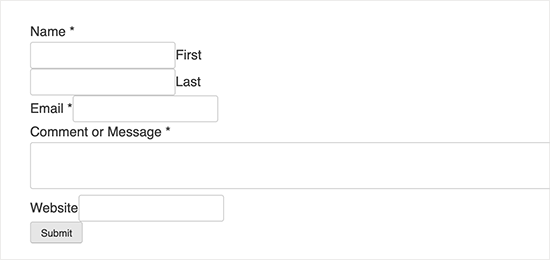
Alla maggior parte degli utenti non piacerebbe, alcuni penserebbero addirittura che sia rotto. Ebbene, è esattamente quello che accadrebbe se il modulo di contatto non aggiungesse le richieste HTTP aggiuntive per caricare i file CSS e JS.
In breve, gli stili e gli script aggiuntivi sono necessari affinché il plugin funzioni correttamente.
Ci sono tre modi per ottimizzare il problema delle richieste HTTP aggiuntive. Tutti richiedono una certa conoscenza di codifica e del funzionamento di WordPress, ma un metodo sarà sicuramente più facile degli altri.
Il primo metodo consisterebbe nello scollegare gli stili e gli script aggiuntivi che vengono caricati dal plugin. Successivamente, puoi combinare gli stili del plugin nel file style.css del tuo tema e combinare gli script del plugin nel file JavaScript principale del tuo tema.
Il secondo metodo consisterebbe nel caricare condizionalmente gli stili/script del plugin nelle pagine in cui sono necessari.
Abbiamo già spiegato entrambi i metodi nel nostro articolo su come disabilitare script e fogli di stile aggiuntivi che i plugin di WordPress aggiungono.
Per quanto riguarda le persone che non sono esperte di codice, puoi utilizzare un plugin di caching premium come WP Rocket che ti permette di minificare e combinare i file con un solo clic. Questo funzionerà nella maggior parte dei casi, ma in alcuni casi può causare conflitti con plugin specifici.
Detto questo, devi capire che alcune richieste HTTP aggiuntive non sono così significative come potresti pensare. Stiamo parlando di millisecondi. Tuttavia, se hai molti plugin che aggiungono richieste HTTP aggiuntive, questa ottimizzazione ti permetterà di risparmiare qualche secondo sul tempo di caricamento.
Molti proprietari di aziende non tecnologiche assumono uno sviluppatore WordPress per velocizzare il proprio sito web (che è un investimento valido).
Ora che abbiamo trattato le richieste HTTP, diamo un'occhiata alle query aggiuntive del database.
Correzione di query di database aggiuntive e processi in background
Alcuni plugin possono aumentare il carico sul tuo server di database. WordPress stesso fa un ottimo lavoro nel memorizzare nella cache le query e la maggior parte dei plugin ben codificati non causerà problemi significativi.
Tuttavia, se hai un sito web ad alto traffico, l'utilizzo di plugin basati su database può diventare un problema, specialmente se non disponi di risorse server adeguate.
Ad esempio, se hai un sito di membership o un negozio online con WooCommerce, allora stai gestendo molte richieste non memorizzate nella cache. In questo scenario, l'unica vera opzione è utilizzare una soluzione di hosting WordPress gestito o anche una soluzione di hosting WooCommerce specializzata.
Ora ci sono alcuni plugin che consumano molte risorse e dovresti evitarli a tutti i costi.
Ad esempio, ci sono plugin che aggiungono varie funzionalità di analisi all'interno di WordPress, come alcuni plugin di opt-in via email, plugin per le statistiche del sito, plugin per il tracciamento delle visualizzazioni dei post, ecc. Questi plugin scrivono in modo inefficiente nel database ad ogni caricamento di pagina, il che può rallentare significativamente il tuo sito web.
Puoi monitorare le analisi in modo più scalabile con plugin come Google Analytics for WordPress by MonsterInsights o Jetpack Stats.
Puoi aggiungere moduli di iscrizione via email con un monitoraggio più scalabile con plugin come OptinMonster o utilizzando i moduli di iscrizione dei tuoi servizi di email marketing preferiti.
Esistono anche plugin che monitorano gli errori 404 e tracciano i link interrotti che possono aggiungere un carico pesante e sovraccaricare le risorse del server. Invece di utilizzare questi plugin, dovresti utilizzare servizi cloud di terze parti come Ahrefs o SEMRush che tracciano automaticamente i link interrotti e offrono anche molti altri utili approfondimenti SEO.
Se non desideri una soluzione premium, puoi utilizzare uno strumento gratuito come Broken Link Checker by AIOSEO. Ti consente di scansionare fino a 200 collegamenti interni per assicurarti che funzionino correttamente.
Come i plugin di WordPress influiscono sulla sicurezza

La sicurezza è un'altra preoccupazione importante quando si tratta di installare plugin di WordPress. Molti utenti temono che avere più plugin possa rendere il loro sito più vulnerabile.
È vero che un plugin WordPress codificato male può essere sfruttato dagli hacker e rendere il tuo sito vulnerabile. Tuttavia, è anche vero per quasi tutto il software esistente.
Le sviste sono inevitabili. Tuttavia, la cosa migliore dell'open source è che molte persone utilizzano il software, il che rende più rapido il rilevamento e la correzione di una vulnerabilità.
Puoi mantenere il tuo sito web sicuro utilizzando un plugin di sicurezza per WordPress come Sucuri. Scansionano migliaia di siti web e ti aiuteranno a individuare la maggior parte dei problemi di sicurezza con un plugin vulnerabile.
Puoi anche proteggere il tuo sito web migliorando la tua sicurezza WordPress generale. Questo ti permette di aggiungere livelli di sicurezza prima che qualsiasi vulnerabilità possa essere sfruttata dagli hacker.
Plugin WordPress e affidabilità
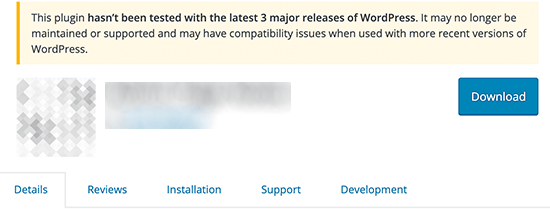
Alcuni si preoccupano dell'affidabilità di un plugin. E se il plugin venisse interrotto? E se gli aggiornamenti fossero lenti?
La cosa bella dell'ecosistema WordPress open source è che ci sono sempre alternative.
Se utilizzi un plugin popolare, è probabile che non venga interrotto. Se lo fosse, qualcun altro probabilmente lo "forkerà" e continuerà lo sviluppo. Questa è la potenza dell'open source. È anche così che è nato WordPress (la piattaforma precedente si chiamava b2/cafelog).
Finché scegli plugin con una buona storia e autori affidabili, andrà tutto bene.
Posso evitare i plugin aggiungendo snippet di codice?
Ci sono articoli su tutto il web che ti mostrano: “Come fare XYZ in WordPress senza un plugin” (come questo).
Lo scopo di questi articoli non è scoraggiare l'uso dei plugin, ma mostrarti come imparare a programmare. Ci sono fondamentalmente tre modi per aggiungere snippet di codice al tuo sito. Puoi aggiungerli al tuo file functions.php, a un plugin specifico per il sito, o usare un plugin per aggiungere snippet di codice personalizzato.
Indipendentemente dal metodo scelto, l'aggiunta di snippet di codice al tuo sito web ha lo stesso impatto sulle prestazioni di un plugin autonomo.
Se installi snippet di codice identici a un plugin, in pratica stai eseguendo il plugin senza installarlo. Lo svantaggio è che non riceverai aggiornamenti del plugin o correzioni di sicurezza per quel codice.
Tuttavia, se desideri aggiungere molte personalizzazioni al tuo sito, puoi sostituire diversi plugin autonomi utilizzando WPCode, il miglior plugin per snippet di codice di WordPress.

WPCode rende facile e sicuro aggiungere codice personalizzato in WordPress, senza dover modificare il file functions.php del tuo tema.
Puoi gestire tutti i tuoi snippet di codice personalizzato da un'unica schermata centrale. Inoltre, puoi cambiare tema WordPress in modo sicuro senza perdere le funzionalità importanti del tuo sito web.
WPCode Pro include una libreria di snippet cloud privata, snippet pianificati, pixel di conversione e altro ancora. Esiste anche una versione gratuita di WPCode che puoi utilizzare per iniziare.
Per ulteriori informazioni su questo argomento, consulta la nostra guida su plugin di WordPress contro file functions.php, quale sia migliore.
Quanti plugin WordPress dovresti installare? Quanti plugin WordPress sono troppi?
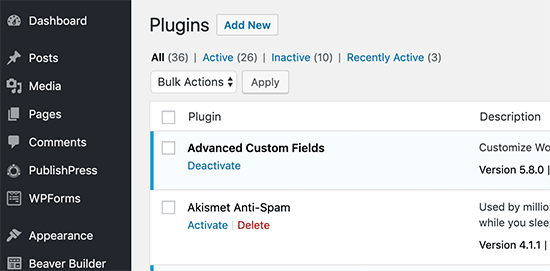
Dovresti installare quanti più plugin WordPress necessari per gestire il tuo sito web e far crescere la tua attività.
In media, è abbastanza comune che un sito web aziendale abbia almeno 20-30 plugin.
Se stai utilizzando WordPress al suo pieno potenziale e hai molte funzionalità avanzate, allora questo conteggio può facilmente superare i 50+.
Ad esempio, ecco il numero di plugin attivi sui nostri siti web:
- WPBeginner – 62 plugin attivi
- OptinMonster – 67 plugin attivi
- WPForms – 54 plugin attivi
- MonsterInsights – 68 plugin attivi
- Blog di Syed Balkhi – 42 plugin attivi
- RafflePress – 17 plugin attivi
- WP Mail SMTP – 39 plugin attivi
Questi conteggi dovrebbero evidenziare che non è la quantità di plugin a rallentare il tuo sito web.
Starai bene con un gran numero di plugin, purché tu stia utilizzando plugin di alta qualità che seguono gli standard di codifica di WordPress.
Come scegliere i migliori plugin per WordPress
Una delle domande più frequenti poste dai nostri utenti è 'come scelgo i migliori plugin per il mio sito web?'
Se stai cercando un plugin gratuito, scaricalo solo dalla directory dei plugin di WordPress.org. La directory ufficiale dei plugin di WordPress rende anche più facile scegliere buoni plugin.
Puoi vedere la valutazione e le recensioni di un plugin fornite da altri utenti di WordPress. Puoi anche vedere quando il plugin è stato aggiornato l'ultima volta e quanti siti web lo hanno installato.
D'altra parte, se stai cercando un plugin premium, assicurati che provenga da un'azienda o uno sviluppatore WordPress ben quotato. Se non sei sicuro, cerca recensioni e testimonianze.
Per maggiori dettagli, consulta la nostra guida completa su come scegliere i migliori plugin WordPress.
Se stai appena iniziando, consulta la nostra selezione di esperti dei plugin WordPress essenziali che ogni sito web dovrebbe avere. Puoi anche consultare la categoria dei plugin WordPress di WPBeginner, dove condividiamo regolarmente i migliori plugin WordPress e come usarli.
Speriamo che questo articolo abbia risposto alle tue domande su quanti plugin WordPress dovresti installare. Potresti anche voler consultare il nostro articolo che sfata i miti più comuni di WordPress, o le nostre scelte esperte dei migliori servizi telefonici aziendali.
Se ti è piaciuto questo articolo, iscriviti al nostro canale YouTube per tutorial video su WordPress. Puoi anche trovarci su Twitter e Facebook.





Gary Jones
Ottimo articolo! Come qualcuno che progetta più siti da circa trent'anni, e anche in altri paesi, trovo molto frustrante che ogni volta che c'è un problema, la tua società di hosting, di cui ne ho usate quasi venti ormai, dica sempre di disabilitare tutti i tuoi plugin e riabilitarli uno alla volta per vedere cosa sta causando il problema. Non è d'aiuto. L'altro problema è essere molto attenti al supporto dei plugin. Ovviamente non installare alcun plugin che non sia stato aggiornato da molto tempo. Anche quelli che hanno supporto zero, di cui ce ne sono molti. Anche con quello che sembra un buon supporto su plugin molto popolari, spesso sono inutili. Ho avuto numerosi problemi con The Events Calendar con alcuni problemi semplici, ma non sono arrivato da nessuna parte. Il mio Foo Gallery, un popolare plugin per gallerie, non ordina le foto in ordine alfabetico, e sono passati ormai più di due anni da quando hanno detto che lo avrebbero risolto. Frustrante!
Brijesh Parikh
Come determinare la qualità di un plugin?
Supporto WPBeginner
Senza conoscenze di codifica, i modi migliori per farsi un'idea della qualità di un plugin sarebbero controllare le valutazioni del plugin, le valutazioni dell'azienda che ha creato il plugin e le recensioni del plugin.
Amministratore
Samuel
Illuminante, ho spesso pensato che molti plugin sul tuo sito web rallentino il sito WordPress. Questo articolo ha demistificato le mie paure. Voglio dire che prima di installare qualsiasi plugin è sempre bene controllare le valutazioni degli altri utenti del plugin prima di acquistarlo o installarlo. Ancora, qualsiasi plugin installato dovrebbe essere testato a fondo per vedere come influisce sulle prestazioni del tuo sito web. Grazie mille, ho imparato molto da questo articolo.
Dayo Olobayo
Sono sempre riluttante a installare nuovi plugin perché temo che rallentino il mio sito. Ma questo articolo sottolinea un buon punto, ovvero che i plugin ben codificati non dovrebbero essere un problema. Dovrò essere più attento alla qualità dei plugin che installo in futuro.
Mrteesurez
Trovare questo articolo mi fa capire più fatti sui plugin di WordPress.
Uno è che: installare uno snippet di codice potenziale è come eseguire un plugin senza installarlo.
Le ripercussioni mi spaventano:
“Lo svantaggio è che non riceverai aggiornamenti del plugin o correzioni di sicurezza per quel codice”.
Inizialmente pensavo di aver installato troppi plugin, ma ora ho scoperto che non è così.
Jiří Vaněk
Ho circa 31 plugin attivi attualmente sul mio sito e sono ancora nella norma secondo Google Search Console, così come GTmetrix e PageSpeed Insights. Ma scelgo plugin di qualità e ho anche il vantaggio del mio server per l'intero sito web. Quindi non devo preoccuparmi delle prestazioni, che ora sono intorno al 20% della memoria RAM. Anche così, avevo una brutta sensazione nell'avere molti plugin. Tuttavia, dopo aver letto questo articolo, vedo che 30 plugin sono una quantità relativamente normale se sono buoni. Grazie per questo articolo. Almeno ora so che il numero di plugin che ho non è così terribile e che è, al contrario, un numero relativamente comune.
Supporto WPBeginner
Glad we could help clear up the misconception about the number of plugins
Amministratore
Moinuddin Waheed
Questa frase secondo cui i plugin rallentano i siti web, l'ho ripetuta più volte e non ero consapevole del fatto che non è il numero di plugin ma la qualità dei plugin che scegliamo.
È bello vedere che hai rivelato quanti plugin usa wpbeginner sul suo sito web.
Potremmo mai indovinare che siano 20, non più di così, ma avere così tanti plugin e caricare in meno di mezzo secondo è una testimonianza in sé sui miti dei plugin.
Grazie per aver chiarito il dubbio.
Supporto WPBeginner
Glad we could clear up the common confusion
Amministratore
Ralph
WPBeginner usa 62 plugin? WOW! Questo sito web è così veloce che sono davvero senza parole.
Pensavo che voi usaste 10-15 plugin come AIOSEO e WPForms che possono fare molte cose piuttosto che molti piccoli plugin. Non conosco nemmeno 25 plugin che mi piacerebbe usare.
Voi ragazzi sapete davvero quello che fate!
Jiří Vaněk
C'è un articolo sull'intera infrastruttura del sito wpbeginner qui sul sito. Non è un server ma diversi in una soluzione cluster insieme a server di cache. Ecco perché il sito è così veloce. E non penso che sia stato così semplice considerando il numero di utenti. Puoi trovare l'articolo a questo indirizzo: https://www.wpbeginner.com/opinion/how-we-made-wordpress-faster-than-static-site-generators-case-study-speeding-up-wpbeginner/
NAON
Oh, benissimo. Grazie mille!
Questa è la risposta che dovevo capire.
Supporto WPBeginner
Happy to hear we could clear up some common misunderstandings
Amministratore
Bilikis
Post fantastico! Grazie per il post, mi è stato davvero utile, ho sempre voluto aggiungere più plugin al mio sito ma avevo paura che la velocità rallentasse.
Ora posso aggiungere plugin utili al mio sito senza alcuna preoccupazione.
Supporto WPBeginner
Glad you found our recommendations helpful!
Amministratore
Vikash Pareek
Ho una semplice domanda: quanti plugin ci sono su https://www.wpbeginner.com/ perché la velocità di questo sito è incredibile,
Ancora una cosa, come posso aumentare la velocità del mio blog, per favore dimmi una formula migliore.......
Grazie in anticipo
Supporto WPBeginner
Copriamo quanti plugin stiamo usando nella nostra sezione "Quanti plugin WordPress dovresti installare?" e per come velocizzare un sito WordPress, ti consigliamo di dare un'occhiata al nostro articolo qui sotto:
https://www.wpbeginner.com/wordpress-performance-speed/
Amministratore
White Cloud
Grazie! Attualmente uso 56 plugin sul mio blog, ma il mio blog si carica velocemente. Il mio amico dice sempre che ci sono troppi plugin sul mio blog, quindi posso mostrargli questo post.
Supporto WPBeginner
Glad our opinion on this can be helpful
Amministratore
safik pm
Quindi come posso trovare i plugin che causano il problema? Si può trovare senza l'aiuto di uno sviluppatore?
Supporto WPBeginner
Dipenderebbe dal problema specifico che stai riscontrando, ma per la maggior parte dei problemi, puoi disabilitare i plugin finché il problema non viene risolto per trovare il plugin problematico.
Amministratore
james
Grazie per questo articolo. L'ho trovato molto interessante perché voglio solo sapere quanto basta. Attualmente uso 40 plugin sul mio sito web.
Francisca
Fantastico!!! grazie per tutte le informazioni.
Supporto WPBeginner
Glad you found the guide helpful
Amministratore
Peter
Bel articolo…molto utile
Supporto WPBeginner
Glad our guide was helpful
Amministratore
Anjali Pillai
Quindi il plugin Sucuri per la sicurezza del sito non rallenterà il sito, giusto?
Supporto WPBeginner
Il plugin non dovrebbe avere un grande impatto sulla velocità del tuo sito.
Amministratore
J-M
Ho iniziato ad avere alcuni problemi con il mio sito, ad esempio una pagina non si carica quando tutti i miei plugin sono caricati. Ho provato a risolvere il problema a 1 plugin – tuttavia il problema sembra verificarsi solo quando ho più di 45 plugin installati – qualunque essi siano. Qualche consiglio?
Supporto WPBeginner
Dovresti disabilitare/abilitare manualmente i plugin per trovare il conflitto specifico o un'altra opzione sarebbe contattare il tuo provider di hosting per vedere se riscontrano errori specifici da parte loro per il tuo sito.
Amministratore
LiquidFool
Quanti plugin di sicurezza raccomanderesti?
Supporto WPBeginner
A meno che i plugin di sicurezza non dichiarino di funzionare insieme, ne raccomanderemmo solo uno per evitare conflitti.
Amministratore
Evie
Grazie per tutte le fantastiche informazioni che pubblicate! Ho appena imparato WordPress quest'anno e l'ho trovato così opprimente all'inizio. I vostri articoli sono scritti così bene e facili da capire e ho appena creato il mio primo sito! Evvai
Grazie ancora a tutti
Supporto WPBeginner
You’re welcome, glad our content has been helpful
Amministratore
Titu Das
Grazie mille per aver condiviso l'articolo!!
Supporto WPBeginner
You’re welcome
Amministratore
Vandana
Quando si ereditano nuovi siti web, ci sono alcuni plugin che sono attivi ma non vengono utilizzati. Esiste un modo rapido per scoprire quale plugin viene utilizzato o è necessario disattivare un plugin e controllare il frontend per vedere se c'è qualche differenza?
Grazie!
Supporto WPBeginner
Purtroppo non c'è un modo semplice per verificarlo e dovresti disabilitare manualmente i plugin uno alla volta
Amministratore
ashish
come hai detto, i plugin mal codificati sono la causa principale del caricamento lento del tuo intero sito. la mia domanda è semplice. Come faccio a sapere se un plugin sarà giusto o dovrei sceglierne un altro! perché non possiamo ottenere informazioni su ogni plugin su google che andremo a usare. per favore rispondi
Supporto WPBeginner
Ciò richiederebbe alcune conoscenze di codifica e test, al momento non abbiamo un modo semplice consigliato per testare la qualità dei plugin per i principianti.
Amministratore
Andre
Articolo piuttosto interessante, dato che sono sempre stato preoccupato per la quantità di plugin in esecuzione, ma questo è stato risolto grazie alle spiegazioni nell'articolo.
La mia preoccupazione ora sarà quindi la qualità piuttosto che la quantità...
Supporto WPBeginner
Glad our article could help clear up the misconception
Amministratore
Noah P.
Penso che un elenco dei 62 plugin che wpbegginer.com utilizza sarebbe molto utile per gli utenti.
Supporto WPBeginner
For what we’re using on our site, you would want to take a look at our Blueprint page here: https://www.wpbeginner.com/blueprint/
Amministratore
Asmat Ullah
Articolo molto informativo .. ogni sviluppatore WP deve leggerlo per evitare malintesi su .. la domanda .. quanti plugin ...
Supporto WPBeginner
Thank you
Amministratore
s sah
wpbeginner è davvero utile per i principianti. Grazie mille per i fantastici articoli.
Supporto WPBeginner
You’re welcome, glad you’ve found our content helpful
Amministratore
Friska Titi Nova
Grazie mille per l'articolo! Sono sollevato! Continua a lavorare per scritti più stimolanti per noi, i principianti! :*
Supporto WPBeginner
You’re welcome, glad our content could help
Amministratore
C. Anderson
Volevo solo farti sapere che diversi plugin che raccomandi sono vietati da WPEngine. Questo mi ha confuso come principiante. Su tua raccomandazione li ho installati, come W3Total Cache e WordFence, ma poi ho ricevuto un'email da WP Engine che dovevo disinstallarli entro 7 giorni. Questo è stato un po' difficile per me come principiante di WP!
MyRealName
ragazzi vi amo. mi avete reso la giornata.
Nati
Great important content! Many thanks
Haydrion Rayel
wpbeginner ha 53? Ow.. io ho solo 5 plugin..
Kadoon
Ottima spiegazione sui plugin.
Tutto questo mi è nuovo e ho studiato di recente come configurare un sito WordPress per il mio affiliate marketing; ho imparato cose sull'hosting web, i nomi di dominio e ora sui plugin. C'è così tanto da imparare che al momento non so nemmeno da dove cominciare o quali domande fare.
Ho bisogno di consigli generali. Posso riceverne qualcuno?
Attendo con ansia una risposta. Grazie.
jaswinder Kaur
Ho visto che usare troppi plugin non fa bene al sito. Quindi ne sto eliminando alcuni.
Danstan
Ho 63 plugin e tutto va benissimo, anche se in realtà non voglio superare quel numero. Non ho mai avuto problemi prima. Fidati, come ha detto lui, scegli ottimi plugin, tutto andrà sempre bene. Buona fortuna!
jerry
Grazie! Queste sono state ottime informazioni e un grande conforto per un principiante di WP come me!
Vitaliy Kolos
Penso ancora che non si debba esagerare con la quantità di plugin perché più plugin si aggiungono, più il sito diventa vulnerabile. Questo perché alcuni plugin sono progettati male o deliberatamente.
Anche se hai un plugin nella tua dashboard ed è inattivo, gli hacker malintenzionati possono comunque approfittarne.
Ileane
Ciao Syed, ho visto il tuo link a questo post da un commento che hai lasciato sul blog di Ian.
La mia domanda è questa: dato che non ho familiarità con il codice, quando installo un plugin e qualcosa si rompe, come posso sapere con certezza quale plugin è codificato male?
Ad esempio, so che possiamo risolvere i problemi rimuovendo tutti i plugin e rimettendoli uno per uno. Ma questo non mi dice con certezza quale sia codificato male perché potrebbe essere solo quello nuovo che ho aggiunto e non nessuno dei vecchi.
Inoltre, c'è sempre la possibilità che il problema sia anche il tema. Ho avuto problemi con il tema Thesis e ogni volta che installavo un plugin per la cattura di lead, il mio feed RSS diventava non valido. Ho provato Optin Skin, Optin Monster, Hybrid Connect e molti altri che non riesco nemmeno a ricordare. Ma ancora oggi non ho mai scoperto quale fosse effettivamente la causa del problema.
Staff editoriale
Ciao Ileane,
Valutare il codice e le prestazioni del plugin richiede una certa conoscenza tecnica.
Questo plugin è un buon punto di partenza:
http://wordpress.org/plugins/p3-profiler/ << Alcuni host non sono configurati per questo plugin, quindi se non vedi alcun risultato, questo è il motivo.
Anche i temi gonfiati con molto codice nel loro file functions.php possono causare problemi. Ricorda che i codici nel file functions.php sono simili ai plugin.
Per quanto riguarda la tua domanda sui plugin nuovi e vecchi... Se nessuno dei nuovi plugin che hai menzionato di aver provato per Optins ha funzionato, allora propenderò per il fatto che il problema sia con i tuoi plugin o temi più vecchi piuttosto che con quelli nuovi.
È anche importante sapere che a volte potrebbe esserci un conflitto tra due plugin o tra un plugin e un tema. Quindi devi sempre essere aperto a provare cose diverse.
So che disabilitare i plugin e fare il debug su un sito live suona spaventoso. Ecco perché il mio suggerimento sarebbe di creare un ambiente di staging.
Quindi prova i plugin che hai installato con il tema predefinito. Se il problema scompare, allora sai che è il tuo tema a causare il problema. Altrimenti, prova i plugin.
Ricorda che se più plugin diversi e "nuovi" causano lo stesso conflitto sul tuo sito, allora è molto probabile che il problema sia specifico del tuo sito e della tua configurazione.
Puoi anche provare a usare la funzione wp_debug per vedere quanti errori vengono restituiti. Fallo su un server locale o su un ambiente di staging. Questo ti darà un'idea di cosa deve essere corretto.
Vorrei poterti dare una risposta più semplice, ma con la vasta gamma di plugin disponibili, codificati da una vasta gamma di sviluppatori, tutti con diversi livelli di abilità, è impossibile dare una risposta semplice.
-Syed
P.S. Ecco il tutorial sull'ambiente di staging:
https://www.wpbeginner.com/wp-tutorials/how-to-create-staging-environment-for-a-wordpress-site/
Amministratore
Ileane
Grazie Syed!!
Uso il plugin P3 Profiler ed è stato davvero utile. Mi sono liberato di un sacco di plugin a causa dei lunghi tempi di caricamento e delle scarse prestazioni.
Devo configurare l'ambiente di staging ed eseguire alcuni test. Offrite un servizio per questo?
Grazie ancora per la tua risposta!
Huguens M
Che sollievo... prima di leggere questo articolo ero totalmente confuso su questo argomento. Siete fantastici. Il peso è ora stato tolto. Wooooohhhhhhhhhhhhhhhhh!!
Ranjeet kumar
Grazie per questo articolo. È troppo bello!
Dave Bell
Un ottimo articolo. Aiuta davvero a chiarire quali siano i veri problemi. Mi sono accorto di essere diventato paranoico riguardo ai plugin. 10 o 11, oh mio dio! Ora sento che la pressione è cessata. Naturalmente, plugin buoni, solidi e ben codificati sono all'ordine del giorno. Dave
Patricio Proaño
Articolo eccellente, molto utile!
Kenny Dowling
Grazie. Un articolo molto utile e informativo che contrasta le opinioni basate su guide che ho letto in alcuni libri ben noti.
E sono d'accordo con Waqas Lone sopra.
Rambo Ruiz
Ehi, grazie per aver chiarito questo punto, anch'io mi stavo chiedendo se troppi plugin rallentassero il mio sito. Ottimo sapere che non è così
Frank Woodman Jr
Grazie per quello che è chiaramente il miglior articolo che spiega i plugin di WordPress e come usarli che abbia mai visto. E l'hai fatto in modo facile da capire e seguire, tanto che anche i principianti possono seguirlo.
Questo è un articolo che metterò sia nei preferiti che condividerò, poiché è davvero una risorsa meravigliosa.
Martin
A volte si può fare una lunga storia breve:
1. Installa solo i plugin che intendi utilizzare, non lasciarli disattivati, eliminali in questo caso.
2. Installa ad esempio il plugin di sicurezza 6Scan per vedere se i plugin che stai utilizzando compromettono la sicurezza del tuo sito e gestiscili in modo appropriato.
3. Offri link a siti che possono misurare le prestazioni di caricamento del tuo sito http://tools.pingdom.com/fpt/
4. Installa plugin come Wordfence e WP Firewall2 per la necessaria protezione del tuo sito. Qui non stiamo parlando solo di plugin, anche i temi possono avere gli stessi problemi di sicurezza.
Grazie
Staff editoriale
Beh, se due parti sono sulla stessa lunghezza d'onda, puoi farlo. Tuttavia, quando stai cercando di educare gli altri riguardo al problema, allora è meglio essere completi.
Amministratore
Waqas Lone
Beh, avete fatto un ottimo lavoro spiegando tutto questo. Non tutti capiscono il motivo + molte persone apprezzano un'analisi più approfondita di tutto, il che è IMPORTANTE. Ottimo articolo!
Frank Woodman Jr
Apprezzo il tuo contributo aggiuntivo e sembra che tu ci abbia dato dei buoni consigli.
lulu
beh, sono d'accordo sul rendere questo articolo di 50 parole, ma per i principianti è meglio presentarlo nel modo in cui l'autore ha fatto. L'articolo fornisce RASSICURAZIONE. E credetemi, noi, i principianti, dobbiamo affrontare MOLTI sconosciuti spaventosi.
Charlie
Ho circa 450 plugin installati su una delle mie reti multisito. Ovviamente non tutti attivati sullo stesso sito. Trovo che il plugin P3 (Plugin Performance Profiler) sia un buon modo per vedere quali plugin causano problemi.
Mladen
Grazie per questo articolo. È stato molto interessante per me leggerlo, perché mi stavo giusto chiedendo quanto fosse abbastanza. Attualmente sto usando 40 plugin sul mio sito.
Alex Denning
Really solid advice there – especially not the number, the quality – WPBeginner is proof of that itself